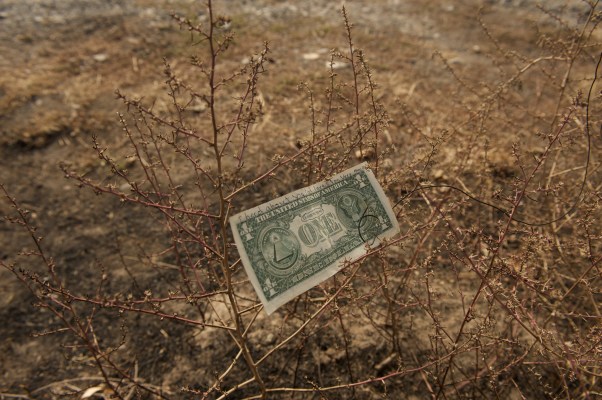Wildfires, and the damage they cause, are a growing problem. The U.S. saw more than 66,000 wildfires in 2022 alone, and while many think of these natural disasters as largely a California problem, they burn all across the country, causing millions of dollars in damage.
Harry Statter knows this as his entire career has focused around the intersection of the built world and natural consequences. Back in 2012, he was working at a foresting company he founded and decided to do some research on what causes buildings and structures to ignite in a wildfire. He found that 90% of structural fires were the result of wind-blown embers, which can travel seven — and up to 24 — miles from an actual wildfire. He decided to pivot.
“Active defense, by way of firefighters being at the property and protecting that structure, you simply can’t scale firefighters to the amount of structures exposed,” Statter told me. “Additionally, firefighters are there for life safety, they are not there for private property protection. During wildfires they are facilitating a safe evacuation of people, they aren’t there to protect people’s homes.”
Statter founded Frontline, which builds external sprinkler systems that use geospatial software to detect wildfires. If a home is in range, Frontline’s software will turn the sprinklers on and offer advice on what users should do next. Ten years in, the company just raised a $6.4 million seed round led by Echelon and is starting to scale.
“We are growing really fast and have seen a massive amount of demand for our technology,” he said. “We are raising our Series A round because we are growing so fast.”
But Frontline isn’t meant to be a silver bullet, and there is still a long way to go until there is a broad suite of technology that helps users mitigate the damage from fires and better learn to live with them. But the foundation for this to change is starting to be built.
While Frontline just raised seed funding, it has been around for over a decade and is one of the early movers in this category, which has started to get a lot more crowded recently. Over the past few years, numerous startups have launched with the goal of mitigating or combatting wildfires, and investors are clearly interested, as many of these startups raised VC funding.
Pano AI, a wildfire detection and management platform that was founded in 2019, raised $20 million in Series A funding in September 2022. Firemaps, a platform that offers home defense plans to combat wildfires, was founded in 2021 and is backed by Andreesen Horowitz. Gridware has raised $5.3 million in funding for its system that monitors the health of powerline poles, often the culprit behind many wildfires.
There is so much growing opportunity in the wildfire tech space that Bill Clerico, a former fintech founder, last year raised a $35 million fund dedicated to the category.
“To leverage the power of startups to have a positive impact is a really inspiring challenge,” Clerico told me at the time. “And one of the reasons why myself and my partners have gone after this.”
Given that wildfires are growing, this trend is happening for a reason.
Wildfires are predicted to grow 30% by 2050. It’s great to see a group of entrepreneurs looking to tackle this very tangible threat and real problem. No offense, of course, to the startups looking to re-create Starbucks or improve marketing teams’ workflow.
Venture capital firms ranging from small regional seed funds to name-brand backers like a16z and Initialized Capital are seeing the need for wildfire technology and are backing these startups.
“The feedback was really encouraging,” Statter said about fundraising for Frontline. “The investors that have invested in Frontline have focused on climate adaptation and there is an immediate need for people to be able to adapt to changing climate and changing wildfires. We were encouraged by what we saw in our initial fundraising round and we are encouraged now.”
Venture investors frequently pour money into things that society doesn’t necessarily need or benefit from, like whatever Adam Neumann is doing with those rental apartments or startups that still think there will be mass adoption of NFTs or the metaverse. It’s refreshing to see money pouring into a sector that could help thousands of people in the wake of a catastrophe.
Plus, investors hungry to get their hands on a few AI investments will find opportunities here, too. Many of the companies building in the space, including Pano and Overstory, are using the tech to analyze data to help spot a wildfire early or find areas where the vegetation conditions make it likely that one would occur.
“Fire is a natural process and we are going to have it and have more of it because of climate change; we have to learn how to live with it,” Statter said.
